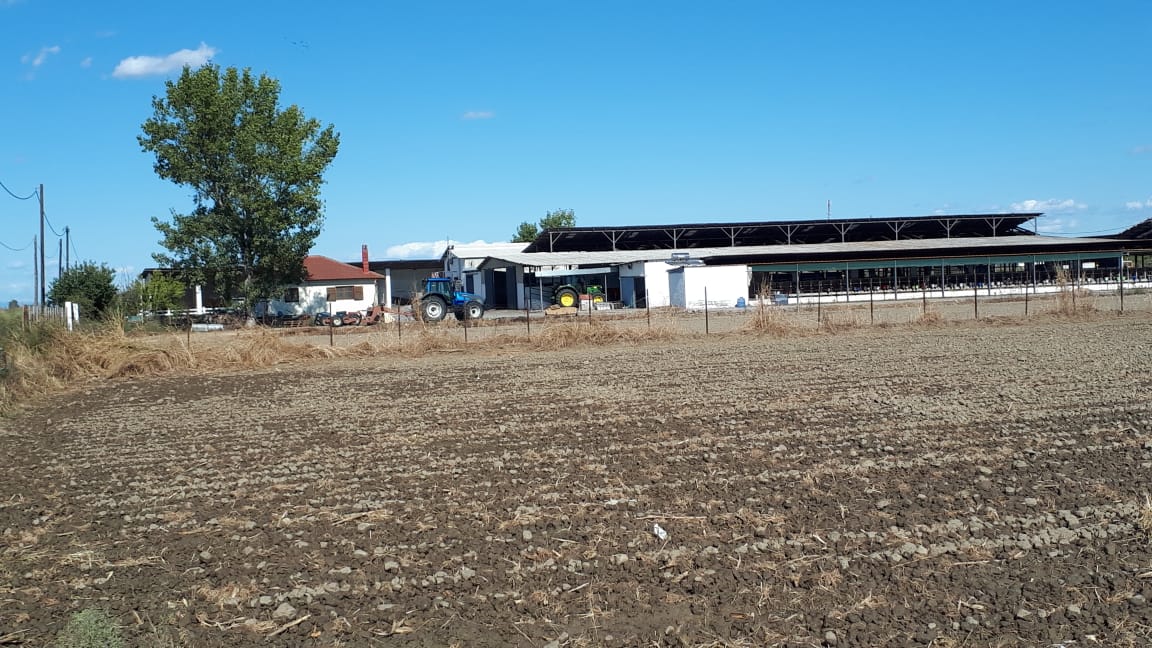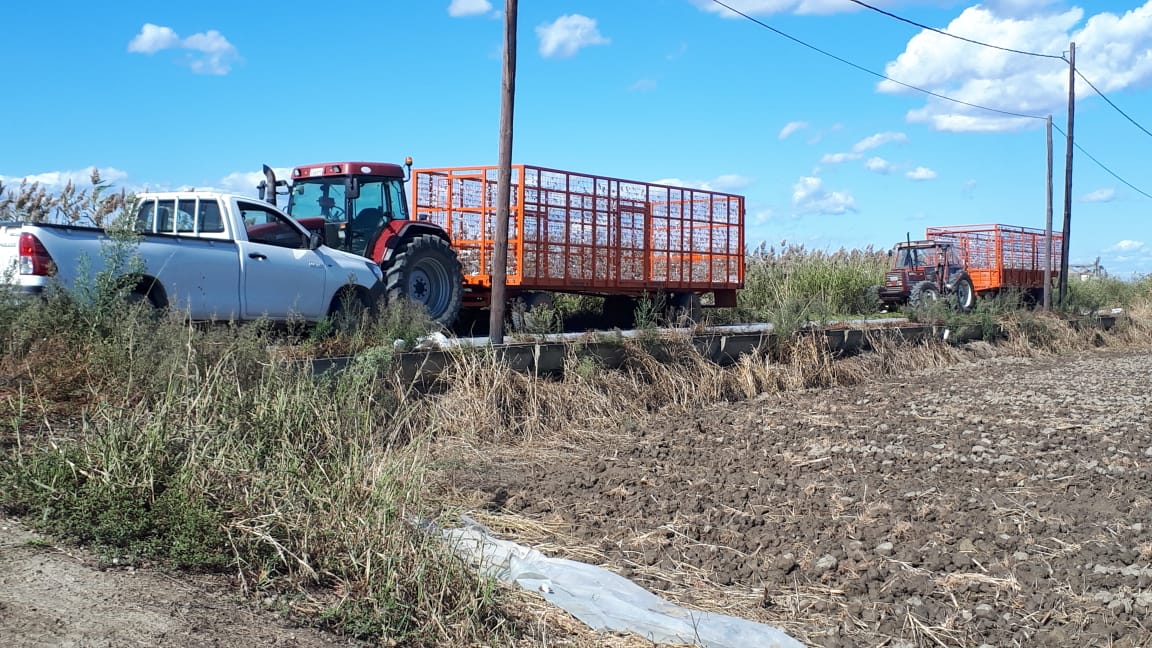While the COVID-19 pandemic initially hampered the flow of seasonal workers from Albania to Greece, it also prompted the two countries to think about how better to regulate the phenomenon.
By Fjori Sinoruka and Merxhan Daci
Romeo Derka usually goes south to Greece twice a year, first to graft olive trees in the summer and then again in the autumn to pick the ripe fruit.
The work is a financial lifeline for his family in Berat, in central Albania, a beautiful UNESCO-protected city where white Ottoman houses line the hillsides but well-paid work is hard to come by.
This year, 28-year-old Derka missed out on the summer work and fears he will miss the harvest too.
“We’re eating through the few savings we have left,” Derka said. “As far as I can see there’s no hope for us. It’s not like I’m the only one – there are many, many others like me who feed their families with seasonal work.”
Thousands of families like Derka’s rely on temporary work in neighbouring Greece, but the flow of workers has been interrupted this year by the COVID-19 pandemic, which closed borders and mothballed many businesses.
The pandemic has proved a major challenge for the agricultural industry in Europe, which is reliant on the import of cheap seasonal labour.
Faced with the prospect of fruit going unpicked and supermarket shelves running bare, governments across the continent waived travel restrictions for tens of thousands of seasonal workers, flying them, for example, from Romania and Bulgaria to the Netherlands, Germany and the UK.
But while the likes of Derka have lost the work they rely on, the pandemic has prompted creative thinking between governments of the kind experts say is long overdue.
After years of turning a blind eye to the illegal flow of seasonal workers, and frequent violations of their labour rights, in May this year the Greek and Albanian governments signed an agreement fast-tracking the procedures for up to 10,000 Albanians to work mainly in agriculture in Greece, waiving the usual visa requirement.
Seeking to avoid the costly and laborious visa process, Albanians usually take advantage of the three-month period they are allowed to stay in the Schengen zone in order to work on Greek farms, despite the fact they are not technically allowed to. Or they simply cross the border illegally. Under the May deal, Greek farms submit a request for labour and Albanians apply for work. It’s all regulated.
“It’s the first time something like this was addressed in 30 years,” said political sociologist and migration expert Eda Gemi, co-author of a study of migration trends in Greece in 2019.
“For the first time Greece recognises and addresses the issue of seasonal workers no longer through visas, because it did not work as a mechanism,” Gemi told BIRN. Now, she said, Greece is saying “I know you use Schengen, I know you work, let me legalise it.”
“We have a triple-win situation – for the person, for the country of origin and for the host country.”
Pandemic underscores importance of seasonal labour

According to Gemi, a senior lecturer at the University of New York in Tirana, Albanians account for some 68 per cent of emigration to Greece.
Last year, 1,944 Albanian citizens were caught trying to illegally cross the border into Greece, according to the European Union border agency, Frontex.
But the pandemic, said Gemi, has underscored the importance of seasonal workers to the economies of European countries.
“Currently in 2020, according to data of the Greek Ministry of Interior, the north of Greece is very dependent on the labour force coming from Balkan countries,” Gemi told BIRN. “According to this data, it is said there were about 7,000-8,000 vacancies that Greek entrepreneurs are waiting to fill.”
“But this was only for agriculture,” she said. “We have no data on tourism.”
Despite the demand and the May agreement between Athens and Tirana, many Albanians lost out on work.
Thirty-year-old Olti Xheka, from the town of Bulqiza in northern Albanian, told BIRN in July that he was unable to pay the application fee, usually between 100 and 200 euros, to a private employment agency to handle the procedure.
“I work whatever it takes,” he said, “even cleaning bathrooms. I don’t care. I just need to earn money to support my family”.
Nazmi Dervishaj, who like Derka is from Berat, had been unable to obtain an employment contract with Greek farmers as required under the May agreement between Greece and Albania. Derka had the same problem.
“I have worked for many years in Greece, in grapes, olives, mainly in the Corinth area [south-central Greece],” the 57-year-old told BIRN, also speaking in July. “This year I wanted to go but it is very difficult. With the money I earned there, I looked after my family here in Albania.”
Ylber Gjeta, director of the Albanian Employment Agency which mediates between workers and prospective employers in several European countries, said there had been “great interest” in work in Greece.
“This is 2-3 months employment, in the field of cotton pruning, vegetable selection, olive harvesting, according to the seasons.”
Interest, he said, is particularly high among Albanians in remote and poorer areas.
Opportunity knocks

Kosta Barjaba, an academic focusing on emigration, said the pandemic had presented opportunities.
“With the outbreak of the pandemic, due to the mainly agricultural economy in the Greek regions along the border with Albania, there was a revival of outflows from Albania to the border regions with Greece. The migratory influx did nothing but respond to the space created in the labour market in Greece for agricultural workers.”
“The Greek government has realised that since Greek agriculture has employment space, facilitating the admission of workers from Albania is necessary and advantageous for two reasons: the lower cost of foreign labour and still high rates of displacement of the local population towards the cities,” Barjaba told BIRN.
“It is already an accepted fact that the reception of immigrants, among other things, has had another double effect in Greece – revitalising agriculture and rural areas.”
While the pandemic caused some initial confusion, he said, opportunities had also opened up to better regulate seasonal work.
“Despite the setbacks or confusion created at the beginning of the pandemic, it seems that the pandemic, despite the difficulties, is creating some opportunities which are being seized by governments.”
Gemi noted, however, that it remained unclear how Albania stood to benefit from the agreement with Greece, particularly on the issue of pensions and insurance.
“I don’t know how the Albanian side capitalises on this type of mobility,” she said. “So far we were talking about the Greek side”.
“It is very interesting that the Albanian government has signed bilateral agreements [on pensions and insurance] with many other countries except Italy and Greece.”
Derka, who lost out on his work in Greece this year, said he hoped for better in the future.
“We hope for that,” he said. “There’s nothing else to do.”
Fjori Sinoruka is an investigative journalist based in Albania, focusing on the misuse of public funds and human rights. Merxhan Daci is a journalist from Albania with experience in fact-checking and investigative journalism. He has reported for other media in the Balkan and Europe.

This article has been produced as part of the Resonant Voices Initiative in the EU, funded by the European Union’s Internal Security Fund – Police.
The content of this story represents the views of the author and is the sole responsibility of BIRN. The European Commission does not accept any responsibility for use that may be made of the information it contains.
